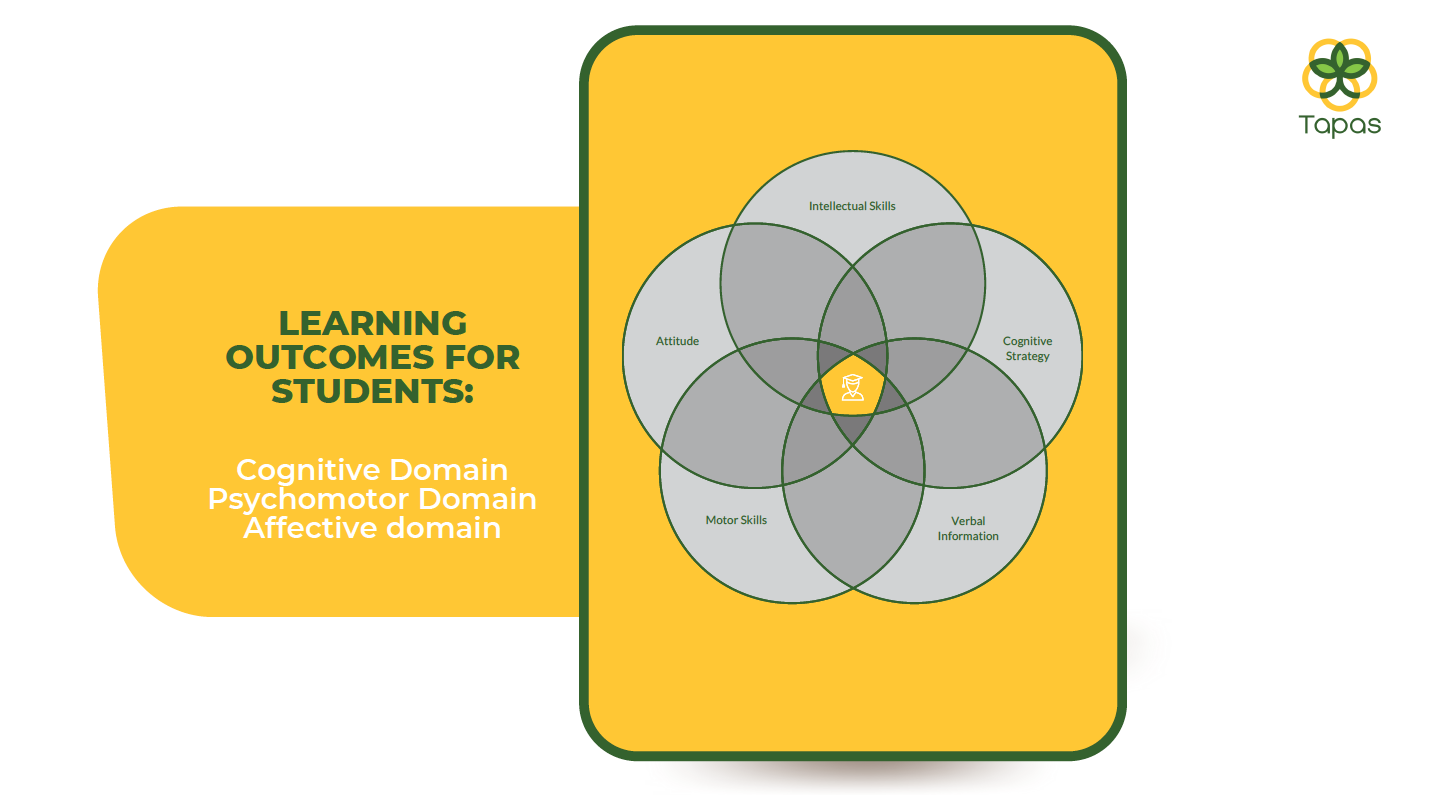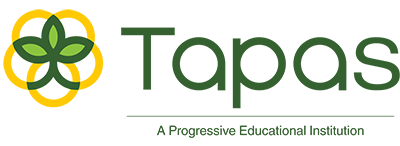
Domains of Development:
- Cognitive Domain
- Psychomotor Domain
- Affective Domain
Further defined into areas of learning outcomes:
- Intellectual Skills
- Cognitive Strategy
- Verbal Information (Communication and Language)
- Motor Skills
- Attitude
These are developed through:
- PBL – Learners in the early years are little scientists trying to make sense of the world around them. They are capable of processing vast amounts of information and do it from the point of view of ‘ego-centricism’, i.e. ‘I, me,myself’. Providing a context to learning by way of projects allows the young learners to make better sense in a manner that is more meaningful and easily understood.
- STEAM – Science, Technology, Engineering, Art and Mathematics are all learnt through a multidisciplinary approach. Using stories as the base of the explorations, STEAM is made fun and enjoyable through hands – on explorations at Tapas.
- Montessori inspired learning – At Tapas, learners will work on becoming more and more independent, by mastering skills required to navigate school and home life easily. Learners will take up:
- Practical Life Activities – Self Care; Care of Environment; Grace and Courtesy
- Math and Language – Learners will use manipulatives for acquiring math and language skills
- Play – Learners will have the freedom and opportunity to learn through play. By engaging in different forms of play, learners will equip themselves with Social-Emotional Skills.
- Pancha Kosha Vikasa – As per the Ministry of Ayush, GOI, Pancha Koshas are described thus, Indian ancient medicine of Vedic period believed that man is a multidimensional /multilayered being. In ‘Taittriya’ Upanishad, a human being is described as having five distinct bodies/ layers/ sheaths called the ‘Koshas’ Our physical body is just one layer amongst several layers of energy that make up a body. Outermost layer is the physical body which is gross and we are familiar with it. Other four are subtle. These are in an energy state and we don’t see them but we can become aware of these, understand these and develop these sheaths with some practice.
The five layers in order of progressive development are as follows:
- Annamaya Kosha focuses on the physical development of the child – During the first years of life, it is critical to provide nurturing and nutrition to the growing child. At Tapas, this physical development of the body is given utmost importance through a well planned meal, focus on sleep and other bodily cycles governed by the Circadian Rhythm. By working with the parents to develop a healthy lifestyle and also ensuring proper routines at school, Tapas tries to bring in the discipline required for the Annamaya Kosha Vikasa.
- Pranamaya Kosha provides the vital energy required for smooth functioning of the various systems in the body. Pranamaya Kosha Vikasa depends on the development of the senses. The 8 senses of the child (Vision, Hearing, Taste, Touch, Smell, Vestibular Sense, Interoception and Proprioception), are developing in the child in the early years. At Tapas, we strive to provide opportunities for developing all the senses. All learning happens with a multi-sensorial approach.
- Manomaya Kosha addresses the feeling realm and fosters the understanding of relationships. What the world today refers to as SEL or Social Emotional Learning, has been a focus area of development from ancient times in India. By having a planned approach to SEL and development, at Tapas, we ensure that this layer or sheath is given equal importance. Activities such as circle time discussion, using stories and rhymes, Tapas promotes social and emotional learning.
- Vigyanamaya Kosha facilitates the development of the intellect, decision making and ability to discriminate. By using PBL and STEAM as the pedagogy, Tapas promotes trans-disciplinary learning. Problem solving, forming association through reasoning and logic and other Higher Order Thinking skills ensure the Vigyanamaya Kosha Vikasa.
- Anandamaya Kosha connects us to the spiritual realm. This sheath is akin to the ‘Self-Actualisation’ mentioned in MAslow’s Hierarchy of needs. At Tapas, children are equipped with ‘how to learn’ and the ‘what to learn’. This ensures that the joy of learning is retained by all children. Particularly with focus on art and expression, Tapas ensured that there is enough impetus for development of the Anandamaya Kosha.
